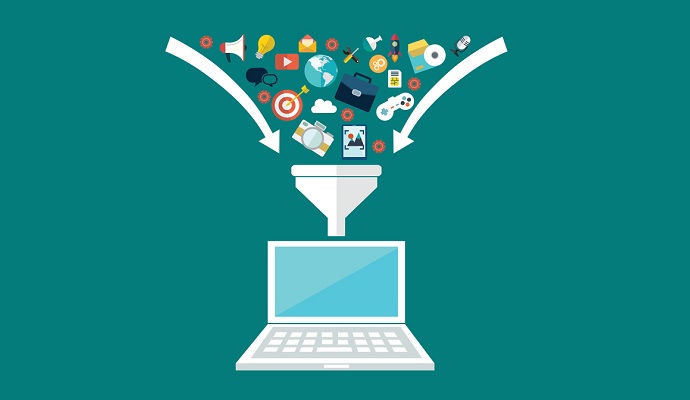AI-Driven Supercomputer Helps with COVID-19 Response, Recovery
Penn State researchers are using an artificial intelligence-powered supercomputer to find COVID-19 treatments and explore ways to help the world recover.

Source: Thinkstock
- A supercomputer powered by artificial intelligence is helping a team at Penn State’s Institute for Computational and Data Sciences (ICDS) find solutions for COVID-19 now and in the future.
For more coronavirus updates, visit our resource page, updated twice daily by Xtelligent Healthcare Media.
Researchers are leveraging supercomputing and artificial intelligence capabilities to uncover possible treatments and therapies for COVID-19, as well as ways to help the world recover socially, economically, and psychologically.
“Our researchers’ response to the COVID-19 pandemic has been phenomenal and the speed and insights that they have shown in creating evidence-based guidance and solutions in support of medical, social and policy responses has been nothing short of inspirational,” said Jenni Evans, professor of meteorology and atmospheric science and ICDS director.
“Our goal is to provide these diverse research teams with the computational tools and support that they need to continue to make advances against this disease, helping society to recover from its ravages and to be more resilient to any future pandemics.”
READ MORE: Artificial Intelligence Tool Identifies COVID-19 in CT Scans
ICDS’s supercomputer, ICDS-ACI, is helping members of the Institute’s Research Innovations with Scientists and Engineers (RISE) team efficiently analyze massive amounts of data. The Institute has seen a ten to 15 percent increase in computation hours since the pandemic began, researchers said.
“The volume of data that many researchers whose work is focused on COVID-19 are using in their experimentation is too large for scientists to effectively handle on workstations or laptops, but easily manipulated within our supercomputer systems,” said Chuck Pavloski, interim chief architect and RISE team lead.
“In this pandemic, every minute counts and supercomputers can deliver results more quickly than standard computers.”
Running these types of calculations on a regular laptop or computer could actually damage the machines, the team noted. Supercomputers can analyze huge datasets quickly and efficiently, because they’re designed to handle large amounts of information simultaneously. In what would take a typical laptop hours or days to complete, a supercomputer can finish in minutes to milliseconds.
“Normal computers are just not designed to run these types of calculations,” said Gretta Kellogg, research computing facilitator at ICDS.
READ MORE: Artificial Intelligence, Genomics Tools to Help Combat COVID-19
“While researchers might be tempted to run lots of experiments or analysis on their own workstations – depending upon the size the scope of those calculations, they can literally overheat their systems while they take hours or days to run.”
The supercomputer is enabling researchers to examine and address the pandemic from many different angles – not just the medical aspect.
One group is using ICDS-ACI to resources to model data on the spread of COVID-19 to help inform disease trends. Other teams are exploring the economical, sociological, and psychological ramifications of the virus, requiring them to analyze datasets that are beyond the processing abilities of normal computers.
“For example, researchers may use cell phone data to track transmission paths of COVID-19 and that would not be possible without the way that we are doing AI on very large-scale machines,” said Pavloski.
“Now, we would expect researchers to want to use supercomputers to investigate the spread of COVID-19, but there could also be researchers who may want to use high-performance computing to investigate the privacy and ethical issues surrounding those approaches.”
READ MORE: New Method Uses Data-Driven Models to Inform COVID-19 Policymaking
ICDS is providing grants for access to ICDS-ACI and its team of experts, aimed at combating COVID-19 and helping society recover. These projects will utilize the power of supercomputing support to approach the outbreak from a range of different directions.
In one project, researchers will study the computational fluid dynamics of augmenting ventilators through splitters to ensure safety and effectiveness. This project will contribute to the university-wide effort to address manufacturing and device needs during the pandemic.
Another grant will support researchers probing the wireless communication modules that could serve in a wearable chest patch that could help medical professionals detect critical conditions of patients who are in isolation from coronavirus. This remote detection could help patients and staff stay safe while isolating, but still remaining under careful observation.
With these grants, and the capabilities of supercomputing, researchers at Penn State will be able to find viable short- and long-term solutions for COVID-19.
"The decision to have cutting-edge research capabilities at scale in the United States to perform this type of research, like genomic research, is going to help save lives," Pavloski said. "It is absolutely critical that we had research facilities that are ready to go immediately when a situation like this arose and are able to expedite investigations into the virus itself, as well as potential vaccines and treatments."
